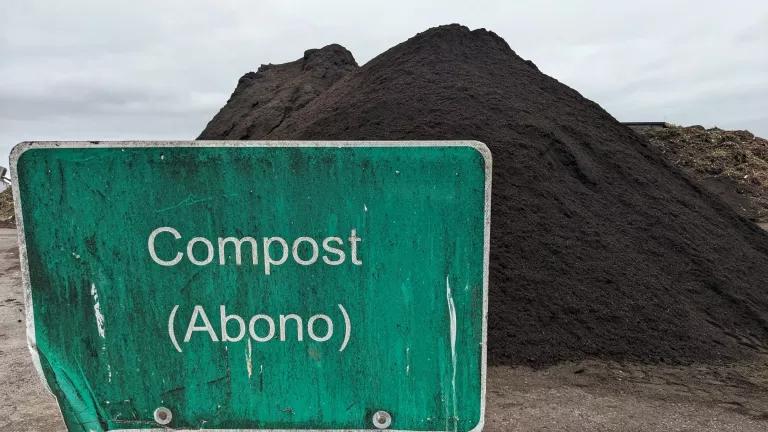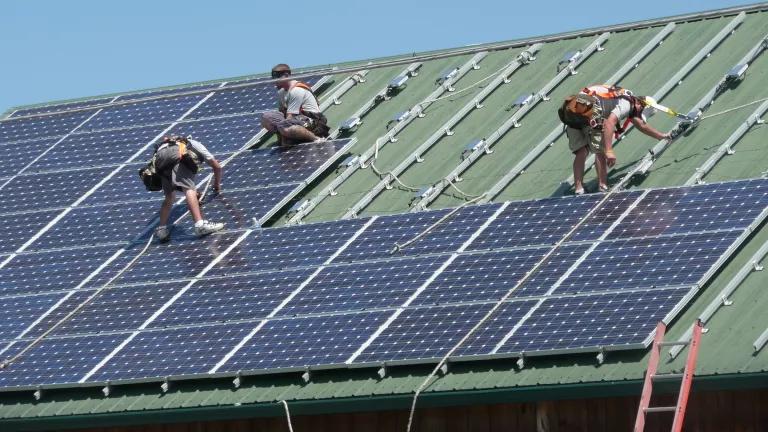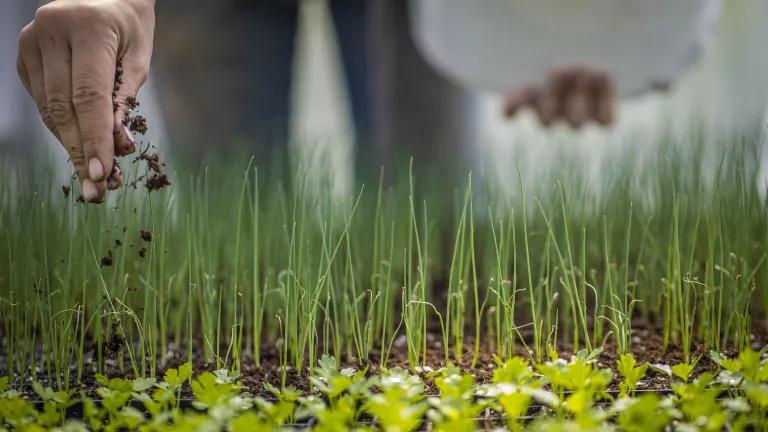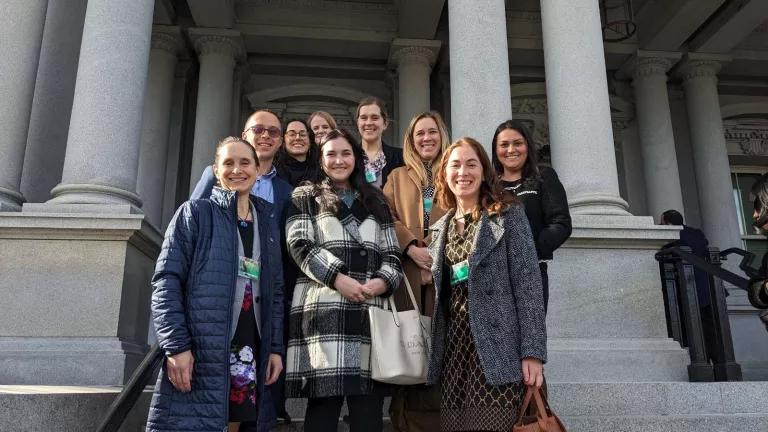Grants Help Communities Build Food Waste Recycling Infrastructure
EPA's Solid Waste Infrastructure for Recycling grants program has awarded funds to prevent and recycle food waste across the country.

A pile of finished compost at the Napa Recycling and Composting facility in Napa, California.
Andrea Collins
The U.S. Environmental Protection Agency (EPA) has issued $100 million in a grant program through the Bipartisan Infrastructure Law to support solid waste infrastructure for recycling in states, territories, and communities, including $44 million to support 33 projects to prevent and recycle wasted food. The grants are a critical component of our national goal to reduce food loss and waste by 50 percent by 2030. The program also aims to advance the Justice40 Initiative to ensure federal funds flow to and benefit underserved communities.
When food is wasted, we are wasting the water, land, and energy used to produce, process, and distribute it, as well as contributing greenhouse gas emissions at every step along the way. Reducing food waste is a key solution to slowing climate change and limiting global losses in biodiversity. Furthermore, as an issue that touches each of our homes, there are significant social and economic benefits to ensuring that everyone has adequate, culturally appropriate, healthful food.
The EPA funded projects vary in geographic reach, amount of funding awarded, and scope of the projects. NRDC is particularly pleased to see awards given to projects that overlap with our food waste work in cities and states, including:
- Baltimore, Maryland, a longtime Food Matters partner, which will be awarded $4 million to develop a solar-powered composting facility which is projected to divert 12,000 tons of food scraps and other organic waste from landfill and from the city’s highly polluting incinerators. Community groups have been advocating for increasing composting opportunities and shutting down the city’s incinerators for many years. This project offers a valuable opportunity for the city to collaborate with community and composting leaders. The grant-funded project helps advance the state’s recently enacted House Bill 264, which mandates that large food waste generators divert their food waste from disposal; we hope to see similar policies enacted in more states. The state of Maryland also received funding for an organics recycling infrastructure assessment and educational trainings.
- Pennsylvania’s Department of Environmental Protection which will conduct a wide-ranging assessment of their food recovery and recycling operations and facilities. The state will also focus on identifying environmental justice concerns in the areas of food donation and recycling collection and will issue recommendations for program adjustments to address these concerns. We hope to see this effort support the work already undertaken through our Food Matters partnerships in Philadelphia and Pittsburgh.
- Oregon’s Department of Environmental Quality which will continue to educate and engage households about reducing food waste. Oregon plans to develop and implement strategy and campaign materials as well as to conduct an extensive campaign evaluation. The department is committed to engaging local governments as well as increasing outreach to Spanish-speaking communities in the state. NRDC has long been involved in efforts to change consumer behavior to reduce food waste in our homes, and we look forward to supporting Oregon’s work as well.
- Additional projects like those in Washington, DC and Ohio will plan for organics management by improving data through waste characterization studies and planning for improved organics recycling and waste prevention. Planning and data collection are important steps in improving the prevention and management of food waste and other organics in order to adequately enact effective reduction measures and right-size recycling infrastructure.
NRDC’s comprehensive approach to reducing food loss and waste recognizes how various levels of government, businesses, and households interact to evolve systems change. Federal support like that from the Bipartisan Infrastructure Law Solid Waste Infrastructure for Recycling grants enables states and local communities to build out plans, gather information, construct public works, and support all the activities needed to reduce food loss and waste. Though each community manages its own solid waste, integrated efforts at the local, state, and federal levels can move the needle on our collective goal for food waste reduction. We need Congress to continue funding these important initiatives so that our communities can build resiliency and circularity into our economy, to preserve biodiversity, to address immediate impacts of climate change, and to ensure the health and well-being of all our community members.





